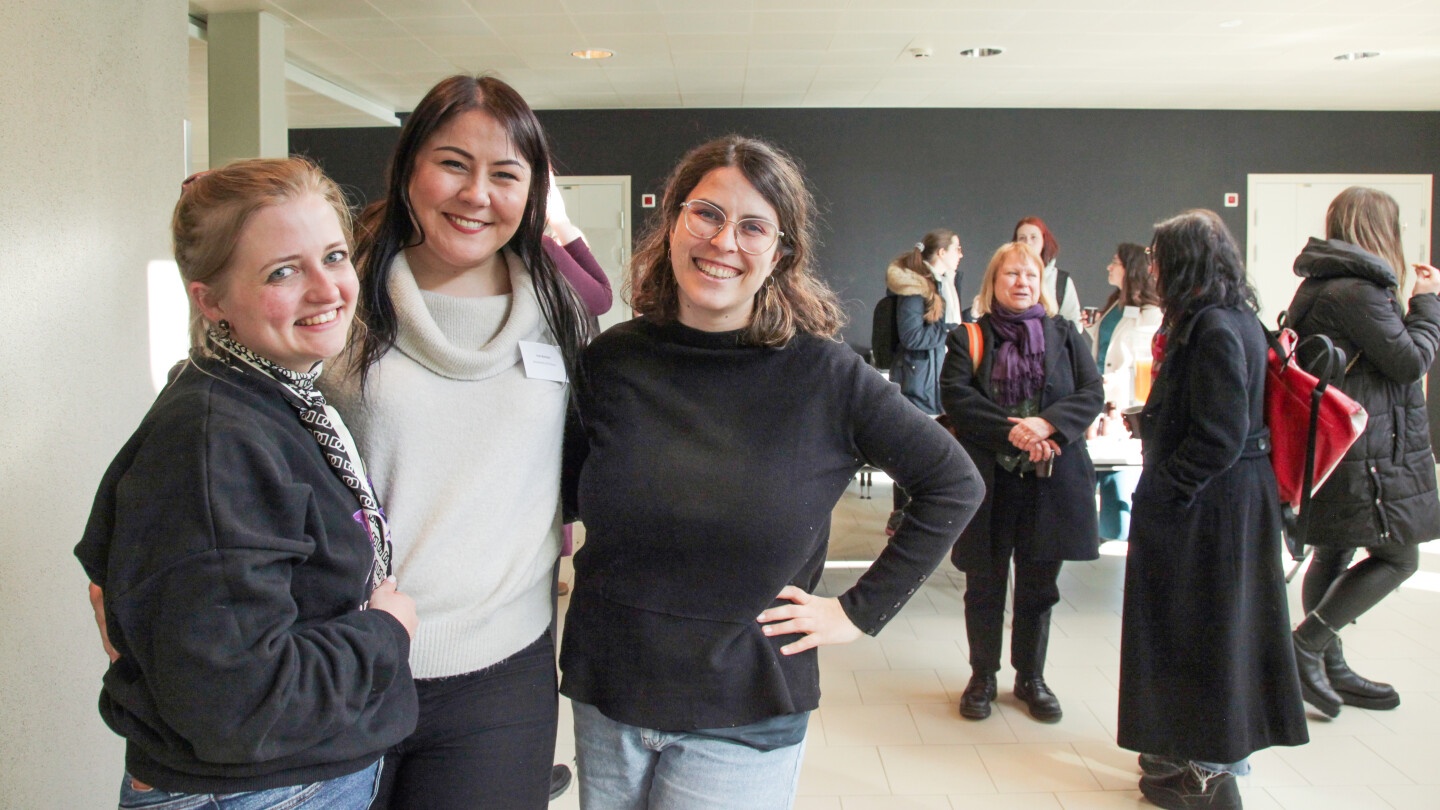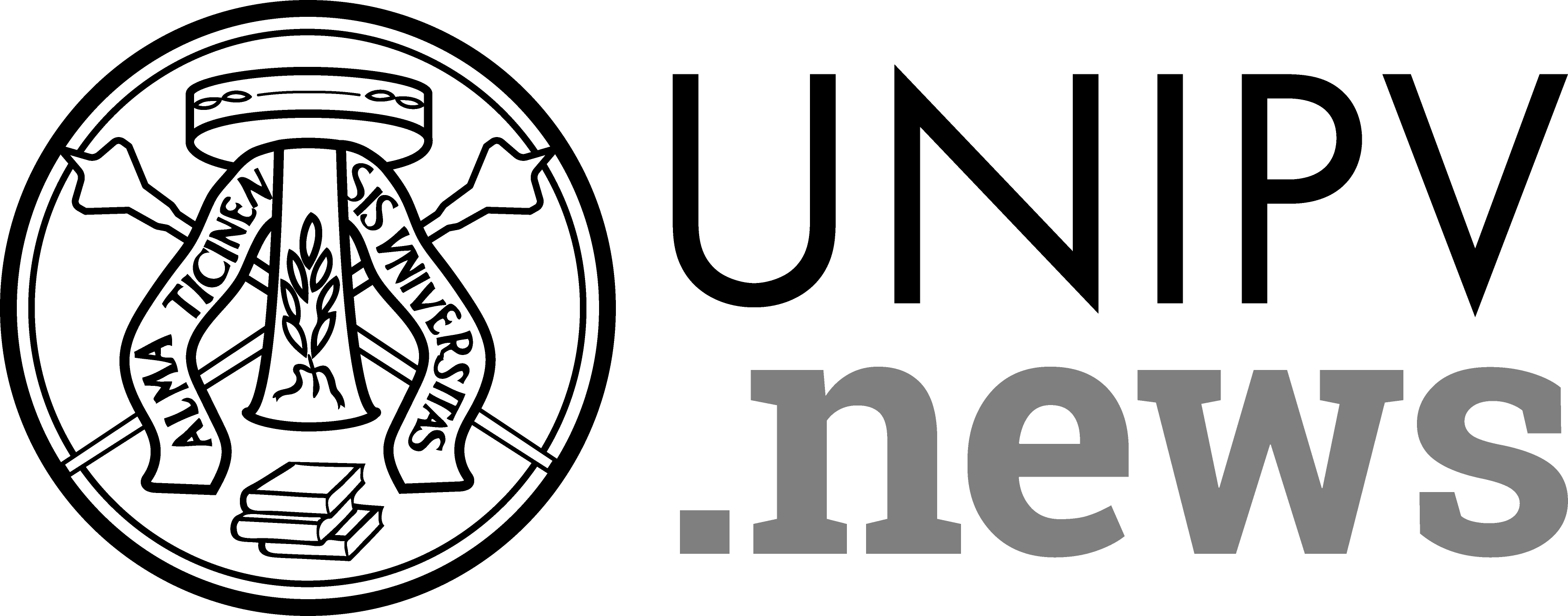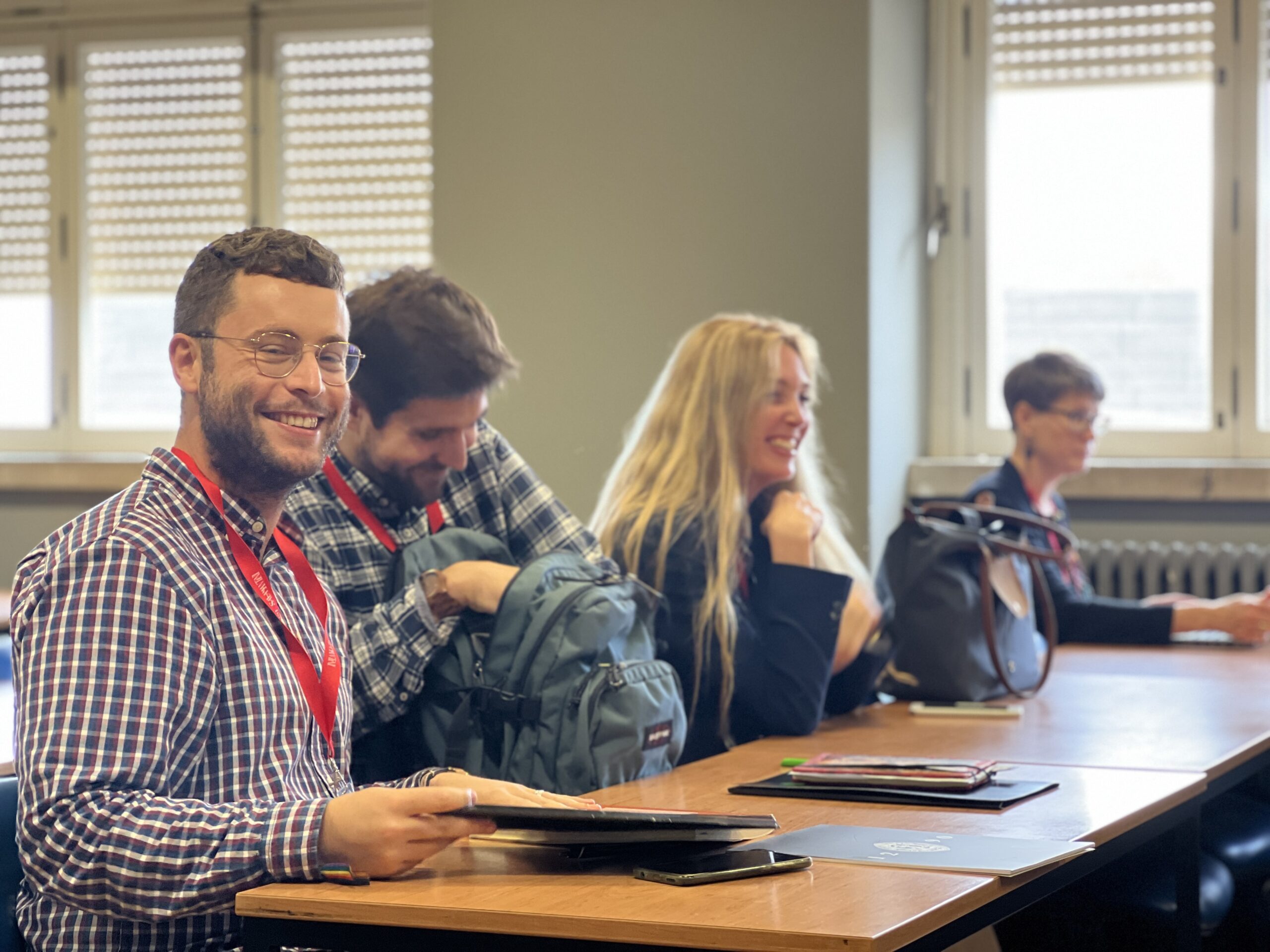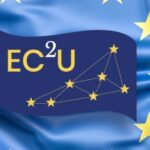(English below) L’Alleanza EC2U, che coinvolge sette atenei europei con l’obiettivo di creare un campus paneuropeo, prevede tra le attività gli Istituti Virtuali (VIs) ovvero “spazi congiunti” che ospitano team interdisciplinari e internazionali di ricercatori, docenti e studenti provenienti dalle università dell’Alleanza. Al momento sono stati istituiti 3 VIs che afferiscono a tre degli obiettivi UNSDGs:
- Virtual Institute for Good Health And Well-Being (GLADE) – #SDG3: Salute e benessere;
- Virtual Institute for Quality Education (VIQE) #SDG4: Istruzione di qualità;
- Virtual Institute for Sustainable Cities And Communities (SCC) #SDG11: Città e Comunità Sostenibili.
È possibile candidarsi per due call aperte per docenti, ricercatori e studenti di Dottorato presso l’Università di Pavia, per VIQE e SCC.
È possibile candidarsi entro il 30 aprile 2023, compilando il form presente sul sito EC2U.
Di seguito la testimonianza di Costanza Marini, dottoranda in “Scienze Linguistiche” dell’Università di Pavia che ha svolto 4 Mobilità EC2U Virtual Institute:
“Il mio progetto di dottorato ruota attorno allo studio della lingua croata e prevede sia la creazione di un piccolo dizionario digitale croato-inglese, che un tirocinio di insegnamento presso il Centro Linguistico d’Ateneo di Pavia. Non appena sono venuta a conoscenza dell’esistenza di EC2U grazie alla mia relatrice, la Prof.ssa Elisabetta Jezek, responsabile del VIQE a Unipv, ho fatto di tutto per essere coinvolta nelle loro attività incuriosita dalla sua caratteristica di alleanza multilinguistica e multidisciplinare.
Negli ultimi due anni, ho avuto l’opportunità di partecipare a diversi eventi formativi organizzati dall’alleanza EC2U, che hanno avuto un impatto più che positivo sul mio dottorato, sia a livello di competenze e esperienze acquisite che di rete di contatti.
Grazie alle borse di mobilità messe a disposizione dal Virtual Institute of Quality Education, ho potuto infatti frequentare sia la prima che la seconda edizione del workshop “New Multilingual Learning and Teaching Spaces for European Campuses”, organizzato la prima volta all’Università di Iasi (Romania) e poi all’Università di Coimbra (Portogallo). Oltre a scoprire due Paesi e a seguire seminari su tematiche affascinanti ed attuali (competenza interculturale, politiche linguistiche, linguistic landscapes etc.), a Iasi abbiamo avuto l’opportunità di frequentare un corso intensivo di una lingua europea a nostra scelta sotto la guida esperta di insegnanti madrelingua provenienti dagli Atenei dell’Alleanza! Io ho optato il finlandese, che si è rivelato essere una scelta provvidenziale, perché ho sia acquisito dei concetti di base della grammatica di una lingua molto interessante, ma ho anche conosciuto Hanna, insegnante di finlandese presso l’Università di Turku, con la quale sono rimasta in contatto e che adesso considero un’amica e collega.
Inoltre, a giugno 2022 ho partecipato al corso intensivo “Machine learning techniques & text processing tools applied to the study of linguistic diversity & cultural perceptions” tenutosi all’Università di Poitiers (Francia), dove – oltre ad aver imparato molto sui learner corpora e su vari strumenti digitali a nostra disposizione – ho conosciuto Dorota, una dottoranda che studia a Poitiers e che si occupa di insegnamento del polacco come lingua straniera. A Coimbra, durante il workshop di novembre, ho poi conosciuto Ines, collega di Dorota e dottoranda di origini bosniache che insegna bosniaco, serbo e croato a Poitiers!
Durante i workshop abbiamo parlato tantissimo, ci siamo confrontate sulle nostre difficoltà e abbiamo condiviso riferimenti bibliografici ed esperienze, per poi ritrovarci tutte e tre insieme alla Winter School “Multilingualism, European Languages and Societies” tenutasi all’Università di Turku (Finlandia) a marzo 2023, dove abbiamo tutte presentato lo stato di avanzamento del nostro progetto e abbiamo gettato le basi per una futura collaborazione volta a promuovere l’insegnamento delle lingue slave minori nei nostri Atenei.
Durante questi eventi ho conosciuto Carlos, un dottorando dell’Università di Salamanca che si occupa di insegnamento del giapponese. Siamo rimasti in contatto e – quando gli ho detto che il mio Corso di dottorato in “Scienze Linguistiche” avrebbe organizzato un convegno dottorale sul tema What is Salience? a settembre 2022 – ha mandato un abstract ed è stato accettato!
Insomma, partecipare a questi eventi può davvero rappresentare un’opportunità unica per un giovane ricercatore in cerca di un network europeo di contatti e interessato a capire quali sono gli sbocchi lavorativi offerte dalle varie realtà coinvolte nel progetto e scoprire come determinate tematiche vengano analizzate in altri atenei.
Inoltre, dato il focus sulle necessità dei dottorandi che caratterizza questi eventi, presentare il proprio lavoro in questi contesti rappresenta un’ottima opportunità per avere un riscontro da ricercatori più esperti. Infine, per i poliglotti come me, avere l’opportunità di rinfrescare tutte le lingue del proprio repertorio parlando delle tematiche che ci stanno più a cuore, è veramente un sogno.
Che dire, applicate per le mobilità EC2U dei Virtual Institutes e non ve ne pentirete!”
Per maggiori informazioni scrivete a relint@unipv.it e ec2u@unipv.it
***
EC2U Virtual Institute Mobility: a great opportunity for Ph.D. students and teachers
Discover the testimony of Costanza Marini and apply you too
The European Campus of City-Universities (EC2U), an Alliance of seven European Universities whose goal is to create a pan-European campus, organises among its activities the Virtual Institutes (VIs), which are “joint spaces” that host interdisciplinary and international teams of researchers, teachers, and students from the seven universities of the EC2U Alliance. At the moment, three VIs have been set up, referring to three UNSDGs objectives:
- Virtual Institute for Good Health And Well-Being (GLADE) – #SDG3: Good Health and Well-being
- Virtual Institute for Quality Education (VIQE) – #SDG4: Quality Education;
- Virtual Institute for Sustainable Cities And Communities (SCC) – #SDG11: Sustainable Cities and Communities.
 It is possible to apply for two open calls for teachers, researchers, and Ph.D. students at the University of Pavia for the VIQE and the SCC.
It is possible to apply for two open calls for teachers, researchers, and Ph.D. students at the University of Pavia for the VIQE and the SCC.
You can apply by April 30, 2023, by filling the form on the EC2U website.
Below you can read the testimony of Costanza Marini, a Ph.D. student in “Linguistic Sciences” at the University of Pavia, who has carried out 4 EC2U Virtual Institute Mobilities:
“My Ph.D. project deals with the study of the Croatian language and involves both the realisation of a small Croatian – English digital dictionary, and a teaching internship at the UNIPV Language Centre. When I first became aware of the existence of EC2U thanks to my supervisor, Prof. Elisabetta Jezek, coordinator of the VIQE at UNIPV I did everything I could to be involved in its activities, intrigued by its feature of being a multilingual and multidisciplinary alliance.
In the last two years, I had the opportunity to participate in different EC2U training events which had a more than positive impact on my Ph.D., both in terms of skills and experiences acquired and in terms of networking.
Thanks to the mobility grant provided by the Virtual Institute of Quality Education, I had the opportunity to attend the first and the second edition of the “New Multilingual Learning and Teaching Spaces for European Campuses” workshop, first organised by the University of Iași (Romania) and then by the University of Coimbra (Portugal).
In addition to discovering two countries and attending workshops on fascinating and current topics (intercultural competence, language policies, linguistic landscapes, etc.), in Iasi, we had the opportunity to attend a three-day intensive course of a European language of our choice under the expert guidance of a native-speaking language teacher from the Universities of the Alliance! I opted for Finnish, which turned out to be a timely choice because I got to learn the basic grammar principles of a fascinating language, but I also met Hanna, a Finnish language teacher at the University of Turku, with whom I have remained in contact and whom I now consider a friend and a colleague.
Moreover, in June 2022, I had the opportunity to participate in the “Machine learning techniques & text processing tools applied to the study of linguistic diversity & cultural perceptions” intensive course at the University of Poitiers (France), where – other than learning a lot about learner corpora and different digital tools at our disposals – I met Dorota, a Polish Ph.D. candidate who studies in Poitiers and works on teaching Polish as a foreign language.
In Coimbra, during the workshop held in November, I also met Ines, Dorota’s colleague and Ph.D. student of Bosnian origin who teaches Bosnian, Serbian, and Croatian in Poitiers!
During the workshops we got to talk a lot, for instance about our difficulties, and share bibliographic references and experiences, and then we met all three together at the Winter School on “Multilingualism, European Languages and Societies” held at the University of Turku (Finland) in March 2023, where we all presented the progress of our projects and laid the foundations for a future collaboration aimed at promoting the teaching of minor Slavic languages in our universities.
During these events, I also met Carlos, a Ph.D. student at the University of Salamanca who is in charge of teaching Japanese. We stayed in touch and – when I told him that my Ph.D. course in “Linguistic Sciences” would organise a doctoral conference on the theme What is Salience? in September 2022 – he sent an abstract and was accepted!
In short, participating in these events can really represent a unique opportunity for a young researcher looking for a European network of contacts and interested in understanding what are the job opportunities offered by the various realities involved in the project and finding out how other universities analyse certain topics.
Moreover, given the focus on the needs of Ph.D. students that characterises these events, presenting your work in these contexts is an excellent opportunity to get feedback from more experienced researchers. Finally, for polyglots like myself, having the opportunity to refresh all the languages of your repertoire by talking about the topics that are most important to us is truly a dream.
What can I say, send your application to the next EC2U event and you won’t regret it!”
For more information, you can write to relint@unipv.it and ec2u@unipv.it
Leggi articolo correlato / Read also:






